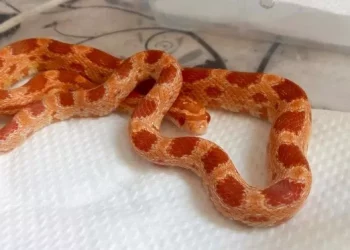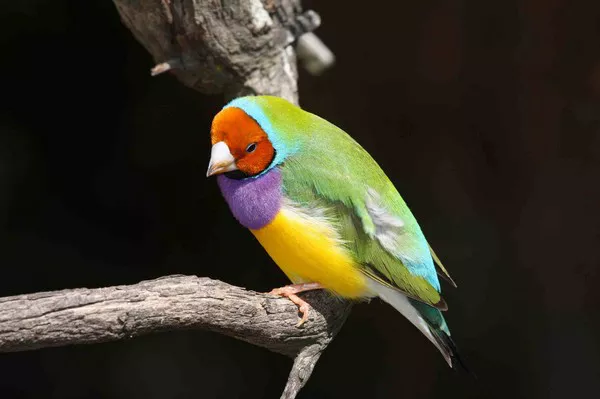Guinea pigs, or cavies, are one of the most popular small pets around the world. They are loved for their gentle nature, social behavior, and cute appearance. However, as with any pet, there are challenges that potential guinea pig owners should be aware of before making a commitment to care for them. While they can be rewarding pets, there are several downsides to owning a guinea pig that should be considered. In this article, we will explore eight important negatives of guinea pig ownership.
1. High Maintenance Care
One of the most significant drawbacks of owning a guinea pig is the level of care they require. Guinea pigs are not low-maintenance pets; they need daily attention to ensure their physical and mental well-being. Here are some of the key care requirements that can make owning a guinea pig demanding:
- Dietary Needs: Guinea pigs have specific dietary requirements that must be met to keep them healthy. They are herbivores and need a diet high in fiber, including fresh hay, vegetables, and specially formulated pellets. They cannot survive on just standard pet food or a single type of vegetable, so owners must provide a well-balanced diet every day.
- Clean Living Space: Guinea pigs can be messy, and their living space needs to be cleaned regularly. Their cages require daily spot cleaning, and the bedding must be changed at least once a week. If these tasks are not completed properly, ammonia from their urine can build up, causing respiratory issues.
- Social Needs: Guinea pigs are social creatures and thrive in groups. If they are kept alone, they can become lonely, depressed, or stressed. It’s recommended to have at least two guinea pigs to ensure they have companionship. However, managing multiple guinea pigs requires additional attention and care to prevent fighting and ensure harmony.
2. Health Concerns and Veterinary Costs
Guinea pigs are prone to certain health problems that require ongoing attention. Though they can live for up to 8 years, they can develop various conditions that can be costly to treat. Some common health problems in guinea pigs include:
- Dental Issues: Guinea pigs’ teeth grow continuously throughout their lives, and if they do not wear down properly, they can lead to painful dental issues. These problems may require regular veterinary visits and even dental procedures to correct.
- Respiratory Infections: Guinea pigs are susceptible to respiratory infections, which can be triggered by poor cage hygiene or exposure to drafts. Respiratory issues often require medical treatment, which can add up in terms of both time and cost.
- Gastrointestinal Problems: Guinea pigs are also at risk for digestive problems, such as bloating, diarrhea, or constipation. These conditions can be life-threatening if not addressed immediately and often require veterinary intervention.
- Skin Conditions and Abscesses: Guinea pigs can develop skin issues like fungal infections, mites, or abscesses, which may require topical treatments or medications. In more severe cases, surgical intervention may be needed.
Veterinary visits for guinea pigs are not always cheap, and the cost of medical treatments can add up quickly, especially if your guinea pig faces multiple health issues over the course of its life.
3. Space Requirements
While guinea pigs are small animals, they still require a fair amount of space to be happy and healthy. A small cage or enclosure is not sufficient for a guinea pig, and they should be given ample room to move around. Ideally, the living space should be large enough for them to exercise, explore, and play.
A proper guinea pig cage should be at least 7.5 square feet for one guinea pig, with additional space for each additional guinea pig. In addition to the cage, guinea pigs need space outside of their enclosure for regular playtime and exercise. This means that owners must have a safe, designated area in their home where their guinea pig can roam freely for a few hours each day.
Providing enough space can be a challenge in smaller homes or apartments, especially when considering the other furniture and space requirements of your household.
4. Noise and Mess
Guinea pigs are not the quietest of pets. They are known for making a variety of sounds, including squeaks, whistles, and chirps. While these sounds can be cute, they can also be quite loud, especially during certain times of day when your guinea pig is excited, hungry, or wants attention. This can be especially bothersome if you have a light sleep schedule or if the guinea pig’s cage is placed in a bedroom or other quiet area of the house.
In addition to noise, guinea pigs can also be messy. They are not very neat animals and will scatter their food, bedding, and toys around their cage. If not cleaned regularly, this mess can quickly accumulate, creating unpleasant odors and an unhygienic environment. The messiness can be particularly difficult for owners who are not willing or able to dedicate time each day to cleaning up after their pet.
5. Allergies
Many people suffer from allergies to pet dander, and guinea pigs are no exception. While guinea pigs may not shed as much as some other pets, their fur, saliva, and urine can cause allergic reactions in sensitive individuals. These reactions can range from mild symptoms like sneezing and itchy eyes to more severe issues such as asthma and difficulty breathing.
If anyone in your household has allergies, owning a guinea pig could lead to health complications, or at the very least, discomfort. It’s important to assess whether your home is suitable for a guinea pig, especially if you have family members with known allergies to pets.
6. Short Lifespan and Emotional Impact
Although guinea pigs can live for up to 8 years, their lifespan is relatively short compared to other pets, such as dogs or cats, which can live 15 years or more. The shorter lifespan means that guinea pig owners may face the emotional impact of their pet passing away sooner than expected.
For families or individuals who become attached to their guinea pigs, this can be a difficult and emotional experience. The bond between a guinea pig and its owner can be strong, and losing a pet that you’ve cared for and loved for several years can be heartbreaking.
If you’re looking for a long-term companion animal, a guinea pig may not be the best choice due to their shorter lifespan. It’s important to be prepared for the emotional toll that comes with the eventual loss of your pet.
7. Time Commitment
Guinea pigs are not low-maintenance pets that can be left alone for long periods. They require daily care, attention, and interaction. This means that if you have a busy lifestyle or travel frequently, owning a guinea pig may not be practical.
You’ll need to provide your guinea pig with fresh food and water every day, clean their cage regularly, and spend time interacting with them. Guinea pigs are social creatures, and they need companionship to prevent loneliness and depression. If you cannot commit to spending time with them on a daily basis, it could lead to health and behavioral problems.
Additionally, guinea pigs can live up to 8 years, which means that caring for them is a long-term commitment. If you’re not ready to devote a significant amount of time to a pet, a guinea pig may not be the right choice for you.
8. Financial Costs
Owning a guinea pig may seem affordable at first, but the ongoing costs can add up over time. In addition to the initial cost of purchasing a guinea pig, owners must also budget for the following:
- Food: Guinea pigs require a steady supply of hay, fresh vegetables, and pellets, all of which can become costly. You must also consider the cost of treats and supplements to keep your guinea pig healthy.
- Bedding: Guinea pig bedding needs to be replaced regularly, and high-quality bedding can be expensive. It’s important to use bedding that is safe and absorbent, as poor-quality bedding can cause health issues.
- Vet Bills: As mentioned earlier, guinea pigs are prone to health problems that can require veterinary care. This can lead to costly bills, especially if your guinea pig develops chronic conditions or needs surgery.
- Cage and Accessories: A proper cage, toys, exercise wheels, and other accessories can be an initial investment, and you’ll likely need to replace or upgrade them over time.
When all of these costs are added together, guinea pigs can become a significant financial responsibility, especially if they develop health problems.
Conclusion
While guinea pigs can make delightful and affectionate pets, they come with their own set of challenges. High maintenance care, health concerns, noise, mess, and financial commitments are just some of the negatives to consider before deciding to bring a guinea pig into your home. If you are thinking about owning a guinea pig, it’s important to fully understand the responsibilities involved and determine if you are ready to provide the level of care and attention these animals need.
Before adopting a guinea pig, make sure you can meet their space, social, and dietary needs. Furthermore, be prepared for the emotional and financial costs of ownership. Guinea pigs can be wonderful companions, but they are not the ideal pet for everyone.
By understanding the challenges of guinea pig ownership, you can make a more informed decision and ensure that both you and your pet enjoy a happy and fulfilling life together.
Related Topics:





















